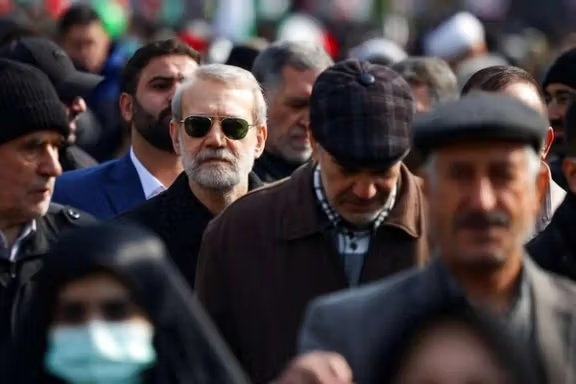Iran security chief accuses US of stonewalling new talks

The newly minted head of Iran's Supreme National Security Council said on Tuesday that Tehran remains open to nuclear talks with the United States but accused Washington of evasion.

The newly minted head of Iran's Supreme National Security Council said on Tuesday that Tehran remains open to nuclear talks with the United States but accused Washington of evasion.
Larijani, a former parliament speaker and veteran nuclear negotiator, was appointed last month to lead the powerful body in charge of key security decisions, where he also holds a parallel role as Supreme Leader Ali Khamenei's personal representative.
His mandate places him at the center of Tehran’s decision-making apparatus following a 12-day war with Israel in June, and his comments marked the most dovish yet on renewing US diplomacy by a top security official since the conflict.
“The path for negotiations with the US is not closed; yet these are the Americans who only pay lip service to talks and do not come to the table — and they wrongfully blame Iran for it,” Larijani wrote on X, posting on behalf of the council.
"WE INDEED PURSUE RATIONAL NEGOTIATIONS. By raising unrealizable issues such as missile restrictions, they set a path which negates any talks."
Speaking separately to Iranian media managers, Larijani dismissed Western demands that Iran scale back its missile program as unacceptable.
“The enemy says we must back down from our missile capability. Which honorable Iranian today would want to hand over his weapon to the enemy?” he said. “We also see negotiations as the path to resolving the nuclear issue. But by raising issues such as missiles, (it shows) they don’t want talks to take shape.”
His remarks underscore Tehran’s refusal to link missiles to nuclear diplomacy. The 2015 Joint Comprehensive Plan of Action (JCPOA) restricted Iran’s nuclear program but did not directly address missiles. However, UN Security Council Resolution 2231, which endorsed the deal, included language urging restraint on missile development.
Larijani argued that Washington is using the missile issue to derail diplomacy.
“At present, the Americans do not want to negotiate. After all, the war broke out at a time when we were in the middle of negotiations,” he said, referring to the recent 12-day war with Israel.
Larijani's comments come amid escalating nuclear tensions. Britain, France and Germany — the E3 — have triggered the UN’s “snapback” mechanism under Resolution 2231, seeking to restore pre-2015 sanctions over what they call Iran’s serious non-compliance.
Tehran, backed by Russia and China, has rejected the move as null and void. Iranian lawmakers have even threatened to withdraw from the Nuclear Non-Proliferation Treaty (NPT) if sanctions are reimposed.
The SNSC chief’s statement on Tuesday called restrictions on Iran’s missile program “unrealizable,” signaling that while Tehran insists negotiations remain possible, it will not make concessions on what it considers a core pillar of its defense doctrine.